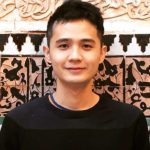
2022
|
|
Why did you choose to do a PhD?
PhD study allows me to grow not only academically but also as a person. Years of pursuing PhD have exposed me to numerous projects and tasks that hone my technical skills and broaden my perspectives in research and professional working domain. Through the challenges of PhD study, it also helps me identify my strengths and weaknesses.
Why did you choose to do graduate education at NUS? If you received offers from other universities, why did you pick NUS?
NUS is a resourceful academic institution which hosts researchers with a broad range of expertise. Pursuing PhD at NUS is an opportunity for me to learn in-depth knowledge from experts in environmental study and data science, in addition to insights into on-going research works in other fields which are related to my own study.
How does graduate school compare to your undergraduate experience?
Graduate study gives you a chance to control and manage the way you want to learn about subjects of your interest. I was given full responsibility as an amateur research from day one I joined graduate school, which was a big struggle at first but also allowed me to learn to work more efficiently and enjoy learning new knowledge at the same time. The pace is much faster than undergraduate course, but this also mean you learn much more as well!
Briefly share about your research or thesis (i.e. dissertation topic for Masters by Coursework students).
My thesis revolves around using machine learning to improve and advance the extent of air quality monitoring (PM2.5 and gas pollutants) in Singapore. My past work includes developing calibration framework for low-cost particle sensors, a type of particle sensor which can be deployed at great temporal and spatial resolution, through statistical learning techniques. Currently, I am extending applications of machine learning on air quality data to perform neighbourhood-scale spatial estimation and infer intrinsic airborne particle properties from other known variables which are readily available.
What impact do you hope to have with your research?
The goal of my research is to make in-depth information about air quality more accessible to the public. Machine learning can be one approach to by-pass complicated sampling and measurement techniques implemented in conventional air quality monitors. Such framework, if proven to give sufficiently accurate air quality data, can be implemented on a larger scale (by local government or even larger) to enhance accessibility of air quality data to the people, hence lowering the risk of exposure to such pollutants.
Share a challenge you faced in graduate school and how you overcame it.
Although PhD is a great opportunity for me to learn many new things, it is also one of the most stressful time in my life. Stress, when not well-managed, had caused multiple troubles both to my academic and personal life. I learned to balance between study and other components of life because I realised that the fulfilment really came from addressing all aspects of life equally.

